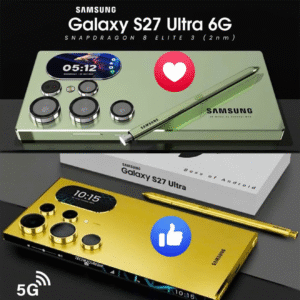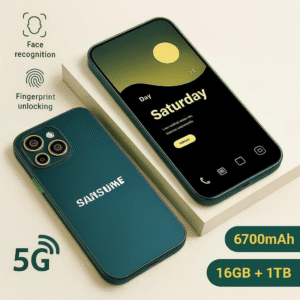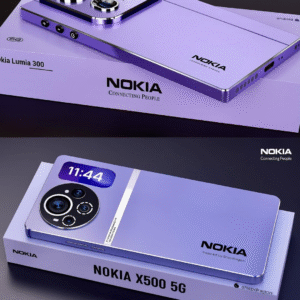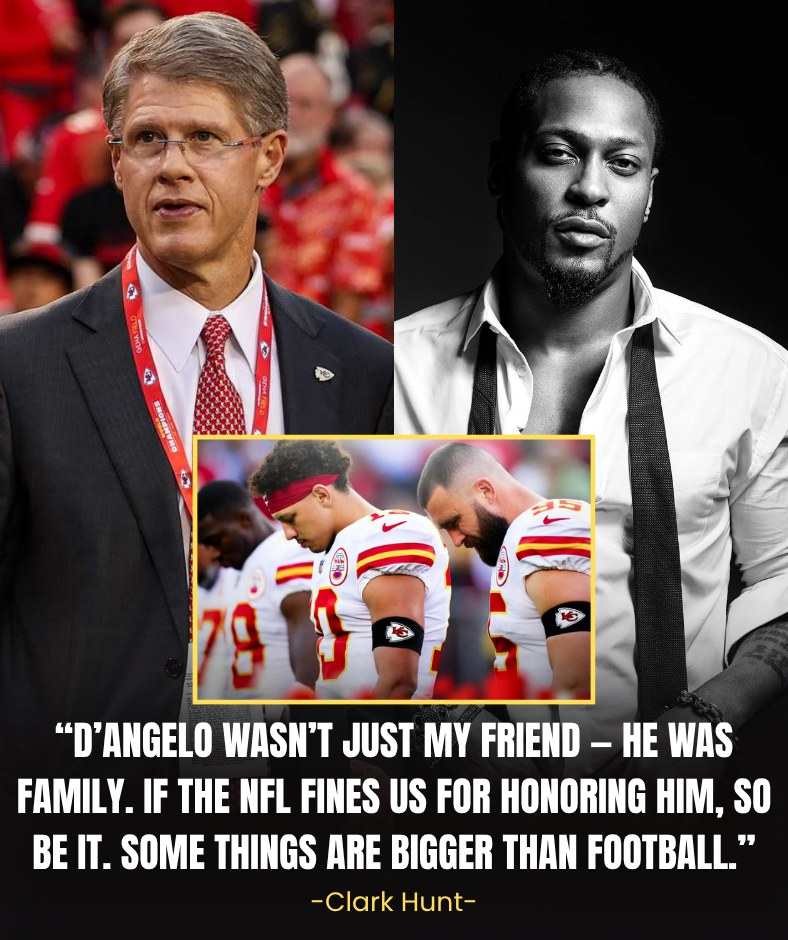
In a gesture that has stunned both the sports and music worlds, Kansas City Chiefs owner Clark Hunt has announced that every player will wear a black headband during the upcoming game to honor the late R&B legend D’Angelo. The tribute, deeply personal to Hunt, represents more than a mere uniform change—it is a symbolic bridge between music, memory, and the spirit of unity that defines American culture.

A Friendship Few Knew About
While fans know Clark Hunt as the reserved, faith-driven executive who has guided the Chiefs to modern dominance, few realized he shared a close friendship with D’Angelo, one of the most enigmatic and soulful voices of his generation. Sources close to Hunt say the two bonded over a shared passion for gospel and rhythm, as well as a mutual respect for artistic excellence. Hunt, who grew up in a family known for tradition and legacy, admired D’Angelo’s willingness to defy convention and push creative boundaries.
D’Angelo’s unexpected passing earlier this year reportedly hit Hunt harder than most realized. Behind the scenes, Hunt began discussing ways to pay tribute—not as a publicity stunt, but as an act of remembrance for a friend whose music had inspired him for decades. After private conversations with team leadership and the NFL’s uniform committee, the idea of the black headband was born
The Symbolism Behind the Black Headband
Unlike standard patches or armbands often seen in memorials, the black headband carries unique symbolism. According to Hunt, it represents focus, unity, and resilience—qualities D’Angelo embodied both on stage and in life. “When I think of D’Angelo,” Hunt reportedly told close associates, “I think of rhythm, discipline, and soul. I think of someone who gave everything to his craft. That’s what I want our players to feel when they take the field.”
The Chiefs’ decision to wear the headbands marks the first time in NFL history that a team has collectively honored a musician in this manner. Each headband will bear a subtle inscription: “Voodoo Lives”—a nod to D’Angelo’s groundbreaking 2000 album Voodoo, which redefined the sound of modern R&B.
A Gesture That Resonates Beyond Football
NFL fans are accustomed to tributes for fallen teammates or coaches, but this decision carries a distinctly cultural weight. The intersection of football and music has always run deep in American life—from Super Bowl halftime shows to locker-room playlists—but rarely has it felt this intimate.
Across social media, reactions have ranged from surprise to admiration. Fans have praised the move as a bold reminder that athletes and artists share a common emotional language. One fan wrote on X (formerly Twitter): “Only in America could a billionaire NFL owner honor an R&B icon this way. This is what culture looks like.”
Sports commentators, meanwhile, have speculated on the deeper meaning. Some see it as an extension of Hunt’s effort to connect the Chiefs organization with the broader creative community, while others believe it reflects a personal transformation in Hunt himself—an evolution from businessman to cultural storyteller.
D’Angelo’s Enduring Legacy
For those unfamiliar with D’Angelo’s influence, his career represents a cornerstone of neo-soul music. His debut album Brown Sugar (1995) and his magnum opus Voodoo (2000) are considered essential works of modern R&B. His songs, often blending sensuality with spirituality, shaped the sound of an entire generation. Artists from John Mayer to Frank Ocean have cited him as a major influence.
Despite periods of reclusion, D’Angelo’s mystique only grew. His live performances, particularly with The Vanguard, were legendary for their intensity and improvisational brilliance. For many, he was not just a musician, but a vessel of emotion—someone who captured the essence of pain, love, and transcendence in every note.
Clark Hunt’s tribute brings that legacy into a new arena. By aligning the Chiefs’ on-field energy with D’Angelo’s soulful artistry, Hunt is sending a message: that greatness—whether in sport or in song—springs from the same well of dedication and heart.
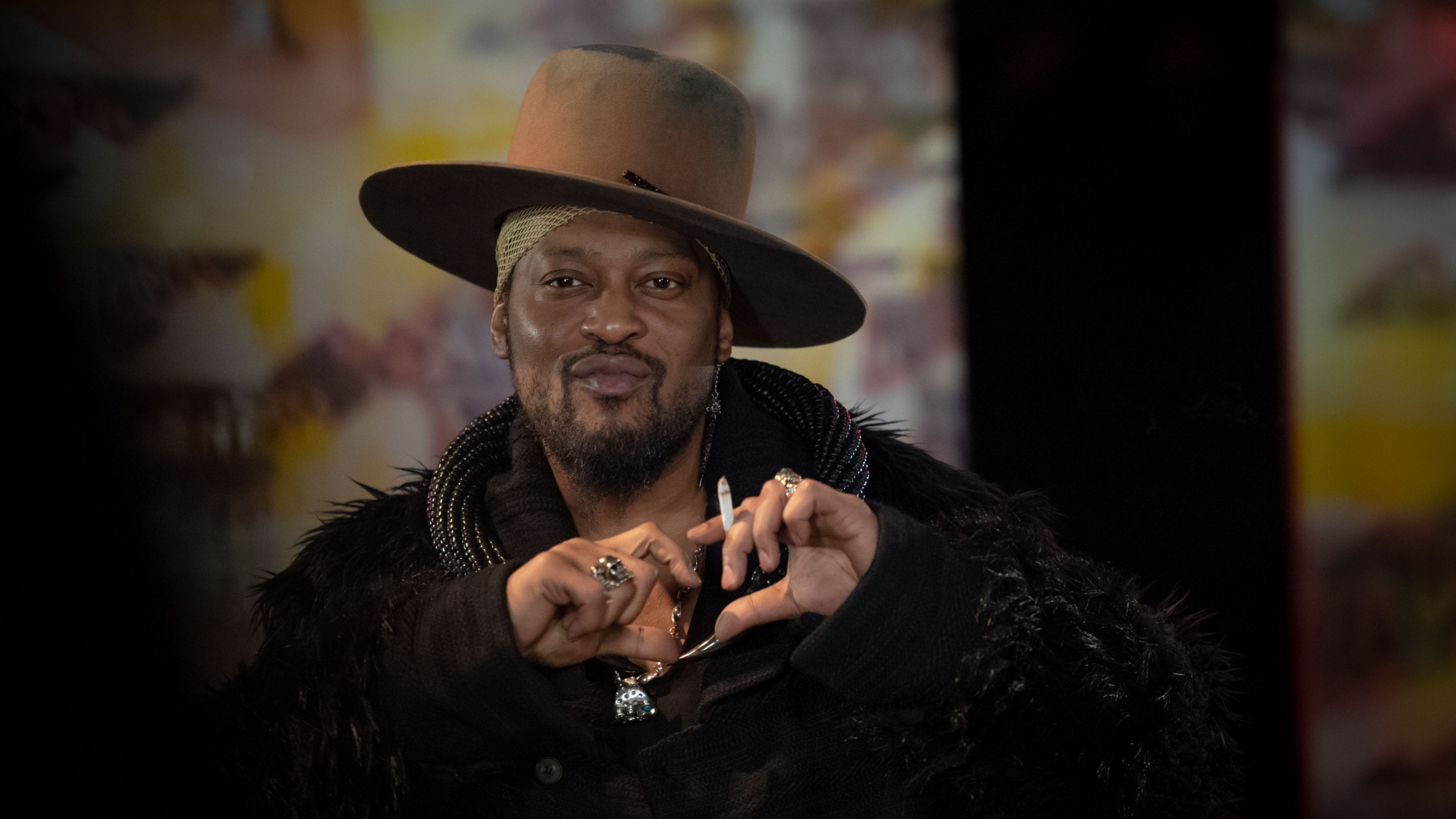
The Team’s Reaction
Players reportedly received the news during a closed-door meeting earlier this week. According to insiders, the atmosphere was emotional. Patrick Mahomes, known for his calm leadership, was said to have nodded quietly and said, “That’s powerful.” Travis Kelce reportedly smiled and added, “Man, that’s soul right there.”
Several players expressed their excitement at participating in the tribute. “It’s about more than football,” said safety Justin Reid. “It’s about honoring creativity, honoring someone who inspired people to feel something. That’s what we’re trying to do on the field, too.”
The NFL has given its full approval, with a spokesperson acknowledging the tribute as “a rare and meaningful gesture that reflects the league’s respect for cultural icons who unite people through artistry and excellence.”
The Broader Cultural Moment
This tribute comes at a time when the lines between sports, art, and social expression are increasingly blurred. From LeBron James quoting Kendrick Lamar lyrics after playoff wins to the Chiefs’ own players collaborating with musicians during the offseason, the cultural synergy between athletes and artists is undeniable.
By choosing to honor D’Angelo, Clark Hunt is tapping into that synergy—reminding fans that football is not just about competition, but about expression. Every touchdown, every play, every cheer from Arrowhead Stadium becomes part of a shared American rhythm.
It’s also a sign that the NFL, often seen as conservative in its traditions, is evolving. Where once uniform codes were strictly enforced, the league is now embracing individuality and creative tributes that connect with fans on an emotional level.
A Legacy in Motion
As Sunday approaches, anticipation grows. The Chiefs’ black headbands will be subtle, but their impact will be enormous. Every shot of Mahomes dropping back to pass, every sideline huddle, every celebration in the end zone will carry the quiet presence of D’Angelo’s spirit—a rhythm echoing through the roar of the crowd.
For Clark Hunt, this isn’t just about honoring a friend. It’s about demonstrating that legacy is not confined to one field, one sound, or one life. It lives on through the people we inspire, the culture we shape, and the symbols we wear.
When the Chiefs take the field under the lights, black bands tied around their heads, the world will see more than a football team. They will see a story—a bridge between beats and heartbeats, between the gridiron and the groove. And in that moment, D’Angelo’s soul will live again, not in a melody, but in motion.
